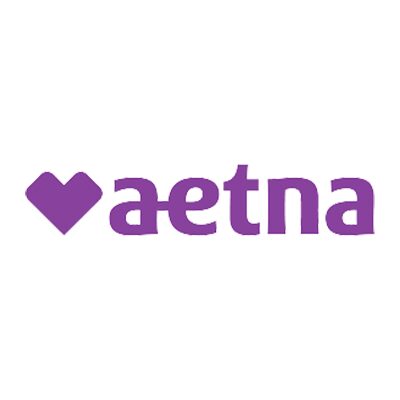Richmond, VA Heroin Addiction Treatment

Heroin can be addictive from the very first time it is tried.
Heroin is a highly addictive drug that belongs to a class of drugs known as opioids, which include both prescription medications like oxycodone and illegal drugs like heroin. Opioids bind to receptors in the brain and body, producing feelings of euphoria and pain relief.
Repeated use of heroin can lead to physical and psychological dependence. Over time, individuals may develop a tolerance to the drug, meaning they need to take more of it to achieve the desired effects. This can lead to a dangerous cycle of escalating use. It’s important that anyone seeking help from heroin addiction visits a licensed drug rehab in Richmond, like Iron Bridge Recovery Center.
Heroin Withdrawal is Tough
Heroin use is associated with a range of health risks, including overdose, the transmission of infectious diseases (such as HIV and hepatitis C), and various physical and mental health problems. Someone struggling with heroin addiction must seek professional help when trying to quit.
Because withdrawal symptoms can be severe and include cravings, restlessness, muscle and bone pain, insomnia, diarrhea, vomiting, and more. These withdrawal symptoms can make it very difficult, but not impossible for individuals to quit using the drug. Working with a drug detox program is the key to getting through withdrawal.
Heroin Is Deadly
Heroin is among the deadliest substances used recreationally. When you ingest or inject heroin, it attaches to receptors in the brainstem that controls breathing and blood pressure. When you build a tolerance or have too much, it greatly increases the chances that you will experience heroin-related respiratory complications or death.
How Heroin Addiction Affects Families
Heroin use has a compounding effect on families. Family members of a person with a heroin addiction often live in constant fear that their loved one will overdose or contract an intravenous disease. If a parent is addicted to heroin, she is likely emotionally and physically unavailable to her children, which can lead them to feel neglected, depressed, or anxious. Experiencing these feelings as a child could result in lifelong issues with abandonment and even addiction.
Services:
Treatment:
Behavioral Effects of Heroin Addiction
As the addiction to heroin progresses, a person commonly begins to show behavioral inconsistencies, including:
- Lying / Theft
- Substantial increases in sleeping
- Incoherent speech, rambling
- Lack of pride in personal hygiene and appearance
- Sudden distance from friends and family
- Borrowing money
- Extreme mood swings, manic behavior
- Emotional projection
Specialized Programs for Richmond, VA
At Iron Bridge Recovery, we recognize that every individual’s journey to recovery is unique. That’s why we offer drug and alcohol detox services designed to address specific needs and provide tailored treatment options for heroin addiction treatment in Richmond, VA.
Possible Signs of Heroin Use:
Although heroin creates a euphoric experience, it’s considered a “downer” or depressant because of its effects on the central nervous system (CNS). Depressants like heroin slow down the activity of the CNS, leading to a range of physical and psychological effects. Heroin acts fast. It’s addictive. It’s deadly.
What to look for:
• Shortness of breath
• Dry mouth, also called cottonmouth
• Constricted pupils
• Erratic behavior
• Confusion
• Involuntarily falling asleep, also called “nodding”
• Slow, heavy movements
These symptoms aren’t exclusive to heroin use, but if your loved one has a substance use disorder and you suspect heroin use, get them help before it’s too late. Your suspicions are likely correct.
Withdrawing From Heroin
The high of heroin is described as calm warmth spreading through the body. Users experience temporary feelings of happiness, contentment, and ease of any concerns.
But when the high wears off, the user will experience mild symptoms like irritability, anxiety, sweating, aching muscles, and insomnia. Then, if they don’t use again, they could start showing more severe symptoms like vomiting and intense muscle cramping.
Although withdrawal from heroin is not life-threatening, the effects can happen so quickly that an addict continues to use just to avoid “dopesickness.”
Heroin Use Health Risks:
Heroin use is associated with a wide range of serious health risks, both short-term and long-term. These risks can impact virtually every system in the body and can lead to severe consequences, including death. Some of the key health risks associated with heroin use include:
- Overdose/Death
- HIV/AIDS (intravenous use)
- Hepatitis C (intravenous use)
- Collapsed veins (intravenous use)
- Infection of the heart lining and valves
- Abscesses
- Cellulitis
- Liver disease
- Kidney damage
- Cognitive impairment
- Pulmonary complications, including pneumonia
Some of these health risks are come from long-term use, but remember that it only takes one dirty needle to contract HIV or Hepatitis C. And it only takes one overdose to end a life.
About Heroin Addiction Treatment
Sadly, the number of heroin-related deaths continues to rise. At Iron Bridge, we support and believe in every individual’s ability to turn their life around and heal from heroin addiction. The first step is admitting you have a problem. Then, we can help you start on the path to recovery from a substance abuse program.
We’ll walk with you through the difficult withdrawal process. We’ll prepare you for all that comes next in your ongoing recovery.
Your journey to sobriety can start today. Give us a call and save your life.











